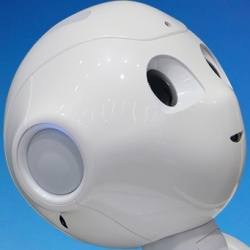
Trading might seem like an obvious place to apply deep learning, but actually it isn’t clear how comparable the challenge of finding subtle patterns in real-time trading data is to, say, spotting faces in digital photographs. “It’s a very different problem,” Ledford admits. Academic experts also sound a note of caution.
Stephen Roberts, a professor of machine learning at Oxford University, says deep learning could be good “for extracting hidden trends, information, and relationships,” but adds that it “is still too brittle with regard to handling of high uncertainty and noise, which are prevalent in finance.”
Roberts also notes that deep learning can be a relatively slow process, and cannot offer the kinds of guaranteed behavior that other statistical approaches offer. In general, he says, there is a certain amount of hype around the idea of AI in finance. “AI is a very broad subject,” he says. “And many standard statistical techniques used are being rebranded as AI and machine learning.”
That said, new financial firms that advertise themselves as AI-focused may be on to something. These include Sentient, based in San Francisco, Rebellion Research in New York, and a Hong Kong, based investment company called Aidyia.
One of the most promising uses of relatively new AI techniques may be processing unstructured natural language data in the form of news articles, company reports, and social media posts, in an effort to glean insights into the future performance of companies, currencies, commodities, or financial instruments.
Aidyia was founded by a well-known artificial intelligence researcher, Ben Goertzel, who is also a founder of Hanson Robotics and the chairman of an open-source AI project called OpenCog. Aidyia began trading last year, and Goertzel says his company’s approach is far more ambitious than the techniques used by most hedge funds today, taking inspiration from evolutionary programming, probabilistic logic, and chaotic dynamics.
“Our system ingests a variety of inputs, including price and volume from exchanges around the world, news from various sources in multiple languages, macroeconomic and company accounting data, and more,” Goertzel told MIT Technology Review.
“It then studies how these various factors have interrelated historically, and learns an ensemble of tens of thousands of predictive models that appear to have predictive value, based on its study of historical data,” which help guide the company’s investments.
There is certainly a trend toward increasing automation among financial firms. Preqin, a company that provides financial industry data, reports that 40 percent of hedge funds created last year were “systematic,” meaning they rely on computer models for their decisions.
Not everyone is convinced that an AI revolution in finance is imminent, however. David Harding, the billionaire founder and CEO of another British trading company, Winton Capital Management, is generally skeptical of hype over machine learning and AI. “If I squinted a little and looked at Winton, I’d say that’s more or less what we’ve been doing for the past 30 years,” he says.
Harding also remembers that a similar boom in interest in neural networks resulted in many startups during the early 1990s. “People started saying, ‘There’s an amazing new computing technique that’s going to blow away everything that’s gone before.’ There was also a fashion for genetic algorithms,” he recalls. “Well, I can tell you none of those companies exist today.”
Ledford, of Man AHL, also has a few words of caution for anyone who thinks the latest machine-learning techniques could offer a shortcut to riches. “It’s important to remember how humbling the market can be,” he says. “I’d say don’t pat yourself on the back too much, but equally don’t get too disheartened.”
